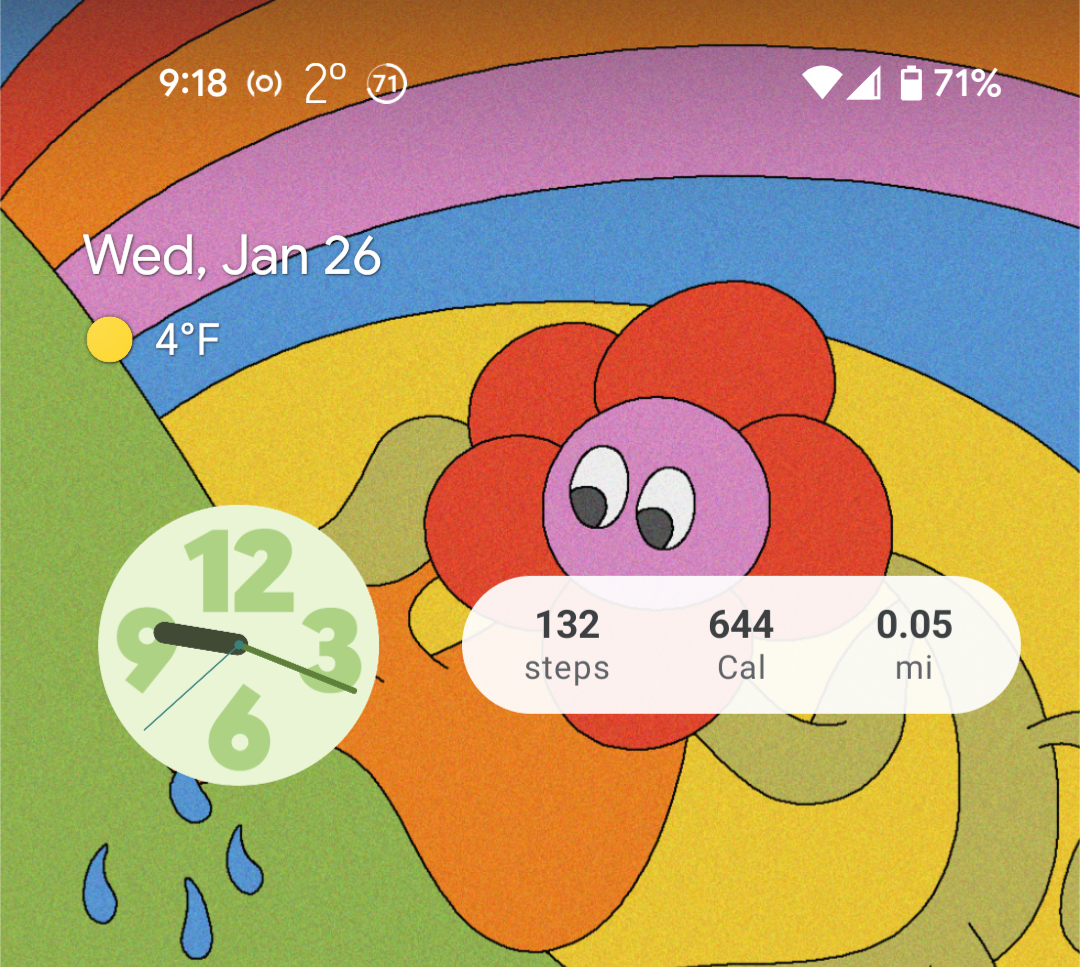Happy groundhog day, snow just started to fall at 8:40 AM EST.

We are supposed to get as much as a foot of snow today, but it has just started. It did rain over night so there could be ice under the snow. Not much yet here at 8:40 AM EST.
(Note, I posted the above using the Android version of the micro.blog app that I thought included a picture, but the picture did not upload.)
Given the publicity, we better get a foot of snow in the next 24 hours.
I almost reflexively resist Internet fads like Wordle. All fads fade, Internet ones usually fade into the corporate money sucking black hole. It helps to remember we are the Ferengi.
Sadly, W.E.B. Du Bois appears to be right.
No person selected and approved as Supreme Court Justice in my life time, if ever, was selected based on their qualifications. Qualifications are a given based on vast number of experienced candidates who have proven themselves in court. Each person is selected based on ideological and cultural preferences. Biden stating his nominee will be a black woman is no different than Trump pledging to select from the Federalist Society’s conservative pro business, anti abortion list. This is the way it is always done.
Something is fundamentally wrong in a democracy that has all the energy around laws to restrict voting rather than expand voting. We should be embarrassed that so few people actually vote, but as has been the case since the beginning the system is built to be run by an elite few. It is said the United States is a republic or a representative democracy, but who is really represented and who is not represented is the metastasis destroying the country from the inside out.
It’s cold and I like how the AccuWeather notification on my Pixel 4a makes sure that I know.

Do any of my readers use Obsidian’s Live Preview mode? If so, can you tell me how you click a link in the normal way that launches the page linked to? For me, when I enable Live Preview mode and click a link Obsidian thinks I want to edit the link rather than open the page. Seems like something is fundamentally broke or I am doing something wrong.
We are receiving our second substantial snow fall of the season. Almost three inches so far, and could get three more.

The NFL goes all in on gambling, decides Super Bowl with coin flip. It is going to happen sooner or later as long as the NFL keeps it’s ridiculous over time rules, unless the sports bookies cause them to change.
The journal and inking design of the Andromeda OS that Microsoft was developing for the Surface Duo hardware before deciding to use Android instead reminds me a bit of the Newton MessagePad. I like what I see Microsoft was doing here and wish they had kept working on it.
We have problems folks when we start to make laws to prevent discomfort. The irony is that such laws are being promoted by conversatives, who normally argue to keep government out of people’s lives. If you are unwilling to feel discomfort you are not willing to grow.
An individual should not be made to feel discomfort, guilt, anguish, or any other form of psychological distress on account of his or her race.
In my opinion, the reactions to Critical Race Theory are telling and seem to prove the point.
Another Meat Loaf song in the soundtrack of my life is Paradise By The Dashboard Light that is associated to a friend’s wedding.
You might have heard the phrase “sound track of your life.” One of the earliest songs on my sound track is Two Out Of Three Ain’t Bad, which for some reason my mind associates with the first dance I went to in middle school. Not that I danced at all, but that was one of the songs played. The memory comes back today due to learning that Meat Loaf has passed away.
I’ve made some tweeks to the CSS of this site that I think make the text easier to read. I hope that you like the result.
A question that should be answered on the government’s COVID test FAQ, how long is the shelf life of the tests? Or how long do they last? If I get the free tests now, do I have to use them right away? Per the recommendations for when to take the tests, I don’t have a need right now, but I may in the future.
Last year Heather Cox Richardson wrote about what the current troubles in the United States are really all about. It’s worth reading again.
I am using the Arabica theme for my blog design and while I like the font face I think it is too light and thus hard to read, so I need to figure out how to change to change the text font.
Mike Caulfield provides good food for thought about over generalizing misinformation:
Instead of seeing versions of hearsay (non-institutional systems of news and analysis) as damaging institutional systems, we could choose to see the hearsay system itself as the thing under attack. That is, in the age of social media, a valuable system of non-institutional knowledge is increasingly gameable and gamed, rendered useless by a variety of threats and incentives that are polluting not the institutional space, but the hearsay space.